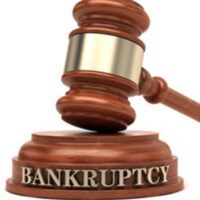Stripping a Second (or Third) Mortgage From Your Home Through Chapter 13 Bankruptcy

Many people have a second or third mortgage on their home, and are drowning in debt. There are ways to use Chapter 13 bankruptcy to reduce the amount of money owed on those additional mortgages. Learn more about how you can strip your second or third mortgage from your pile of debts through Chapter 13 bankruptcy.
Qualifying to Strip Additional Mortgages
The ability to strip mortgages is one that involves the economic environment. If there are declining or static home prices, there is more of an opportunity to strip additional mortgages through Chapter 13 bankruptcy. To qualify to strip second or third mortgages, your home may not be worth more than the value of the liens placed legally ahead of the mortgage. This means that if you want to strip a second mortgage, the value of your home can not be more than the total amount of your first mortgage’s balance plus any additional senior liens (i.e. unpaid property taxes, homeowners association unpaid dues or fines, or an income tax lien.)
Mortgage Stripping and Chapter 13
If you are considering stripping a mortgage, there is a section in your Chapter 13 plan which will need to be filled out accurately to identify the fact that you wish to strip a mortgage. Additionally, in most cases, you will also need to file a motion to strip the mortgage with the bankruptcy court. In many cases, this will lead to a more adversary proceeding that attempts to determine the true value of the home. Once all of the facts regarding the financial value and status of the home occur, the determination will be made either by consent, or by the ruling of the judge whether the mortgage can be stripped.
Value of Mortgage Stripping
If a debtor is able to strip the second or third mortgage in a Chapter 13 bankruptcy, then the mortgage becomes an unsecured debt, meaning that the debtor can stop making mortgage payments on those second or third mortgages. A debtor will need to pay on these debts the same as any other unsecured debts, which are not the same as secured debts. How much a debtor will end up paying on these mortgages will largely depend on what a debtor can afford to pay and will be established through a calculation called your disposable income. Disposable income is a debtor’s net income minus reasonable expenses. This means that if your disposable income goes to other debts that are considered in some way legally more important (such as child support, spousal support, income taxes, vehicle loans or the first mortgage), then you may not have any disposable income left to pay the second or third mortgages. In some cases, a debtor may pay nothing on their stripped mortgage balances.
Let Us Help You Today
If you are considering bankruptcy, make sure that you understand all of your legal options, especially if you have a second or third mortgage on your home. Contact us for a consultation to see how an experienced West Palm Beach bankruptcy attorney at Kelley Kaplan & Eller at 561-264-6850 can help you understand your legal rights.
Resource:
flmb.uscourts.gov/procedures/documents/striplienprocedure.pdf
https://www.kelleylawoffice.com/irs-income-tax-return-deadline-postponed/



